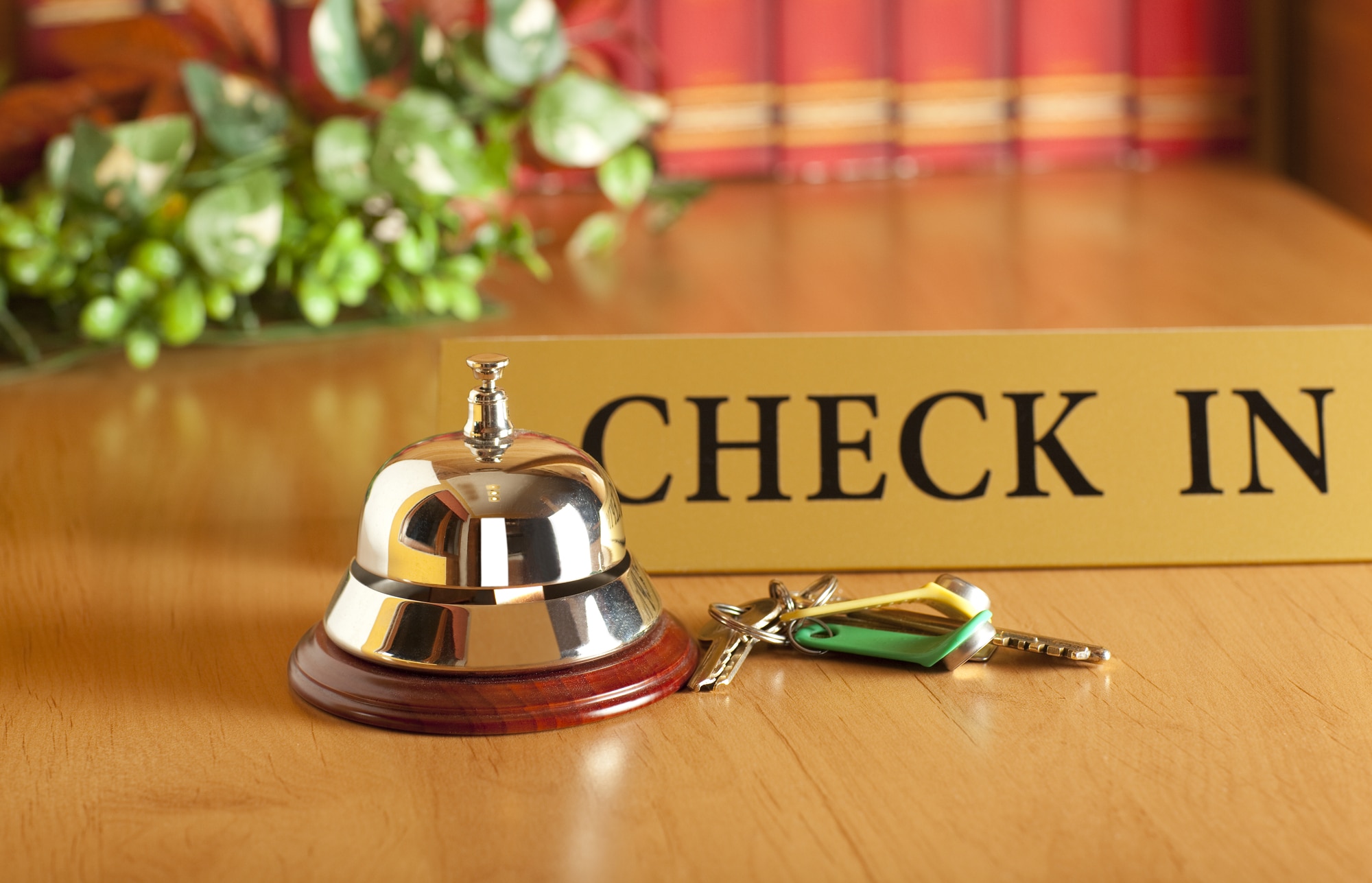Booking and staying in a hotel can seem complicated if you are unfamiliar with them. This article answers some of the most common questions that people ask about hotels.
Table of Contents
Can you Have Visitors in Hotel Rooms?
In the United States, most hotels allow visitors to enter your hotel room, as long as they are not staying the night. You will have to accompany your guests throughout the hotel, especially if any doors need your room key for access.
In other countries, especially in bigger cities, there may be more restrictions regarding who can access the hotel and whether or not you can have visitors in your room.
There are many reasons that hotels limit who can enter. Some of the biggest reasons are security, fire codes, safety, and legal limitations.
When you check into your hotel, the hotel notes who is staying there. If there are extra people in the hotel, it may cause problems during an emergency.
As the COVID-19 pandemic continues, hotels may have different policies in place based on government or company restrictions. If you plan on having visitors in your room for any reason, check with the hotel ahead of time to make sure there are not any temporary restrictions in place.
If you end up having a guest but did not plan on having anyone visit, you can stop by the front desk to ask about having a visitor. Sometimes your visitor will just need to register at the front desk, so the desk knows who is in the hotel.
It is better to ask in advance instead of assuming that you can have a visitor and face the consequences.
You may have to pay a fee for having more people in your room than you originally paid for. Or, there may be bigger consequences like legal issues due to trespassing, breaking fire codes, or a variety of other issues.
Why do Hotels Ask for the Number of Adults?
Hotels need to keep track of how many adults are staying in each room for various reasons.
First, some hotels charge based on the number of people staying in each room instead of the number of rooms you need.
Sometimes, they offer amenities like breakfast for each person, so you want to have an accurate number on your reservation.
They also need to know for emergency reasons. For example, if there is a fire or a similar situation, they need to know who is in the hotel to make sure everyone is accounted for.
Finally, there are fire codes that hotels must follow. They can only have so many people staying at the hotel simultaneously and only so many people per room.
If the hotel breaks these laws, they can face legal repercussions, which will likely involve you for breaking their rules.
If you do not have the proper number of adults listed per room and the hotel finds out, you may have to pay fines, pay the extra cost for your stay, and possibly face bigger legal issues.
Can I Leave my Luggage at the Hotel After Checking Out?
Yes, a majority of hotels will allow you to store your luggage after checking out, as well as before checking in. It usually does not cost anything extra and comes complimentary as a part of your stay.
Storing luggage is a common request that guests have. Sometimes your travel itinerary does not line up with your hotel’s check-in or out time, or you may want to stay near the hotel and explore, get some food, or do something else before you leave wherever you are staying.
Being able to leave your luggage behind is a big convenience which is why hotels offer the service.
What Does Early Bird Rate Mean in Hotel Reservations?
An early bird rate is a cheaper rate that hotels offer to people who book far in advance, usually anywhere from a few weeks to months early. You will save money on the booking, but some restrictions may come with the savings.
First, cheaper rates, whether they are early bird rates or not, are often nonrefundable. If they are refundable, there might be a cancellation fee that you have to pay, so you want to be sure of your plans.
If you need some help finding a good deal on your hotels, you can check out our page on where to find amazing travel deals. There is a list of websites that will help you find the best deals on hotels, as well as on other parts of your travel like airfare and rental cars.
Is it Better to Book Hotels Early or Late?
It depends on what you are looking for in a hotel room and how much money you are willing to pay.
Booking early will save you money, as explained in the section above.
You will also have a bigger selection of rooms and packages to choose from. So, say you are booking for a large family and need a suite or multiple rooms together, booking early is important to get what you need.
If you book your hotel late, some rooms or packages may not be available if they are sold out. But, booking late can also mean lower prices since hotels want to sell as many rooms as possible.
Booking closer to your check-in dates also means there is a smaller chance that you will need to cancel or change your reservation. In this case, you might not worry about cancellation policies or fees as much, which can also mean a lower price.
Questions to Ask a Hotel When Booking a Hotel Room
Some of the most important questions you should ask hotels before booking a hotel are covered in this article, like amenities, visitors, pets, and any check-in requirements they have. But, there are other important questions to ask as well.
The most important question to ask is about the hotel’s cancellation policy. If your plans change, you want to be able to change or cancel your reservation without losing all of your money.
The best cancellation policies let you cancel for free up to twenty-four hours before you arrive. If you can’t find a hotel with a flexible cancellation policy, try finding one with the smallest fee, so if you do need to cancel, it won’t cost you too much.
Second, ask about the check-in and check-out times. You do not want to arrive at the hotel just to find out that you can’t check in until later in the day.
You can plan your flight, drive, or other transportation arrival times based on the check-in time. Or, you can plan to drop your luggage off at the hotel before check-in, then explore your destination until it is time to check in.
Next, ask about the safety of the hotel’s neighborhood and what there is to do in the area if you are unfamiliar with it. Make sure there are restaurants, entertainment, and anything else you may want close by, especially if you are planning to walk everywhere after you arrive.
Finally, if you are flying to your destination, ask the hotel about transportation options from the airport. Some hotels, especially in big cities and popular tourist destinations, will offer a free shuttle service.
Otherwise, ask about ride-share services, taxis, or public transportation options. Make sure you know when these services operate and if there are any you should avoid.
What Amenities are Offered by Hotels?
The amenities offered by a hotel will vary depending on the rating of the hotel.
For example, a 1-star hotel, often a hostel, will offer very little, if anything. You will have to supply your towels, bedding, and breakfast.
Sometimes 2-star hotels, also considered hostels or motels, will provide you with towels and bedding, but usually not breakfast.
As for 5-star hotels, they are almost always offering as many amenities as you could want. You will have the basics plus typically a pool, breakfast, free internet, room service, in-house dining, and more.
The 3-star and 4-star hotels will fall somewhere in the middle, offering the basic amenities, but they may not have pools or dining options.
While these categories are what you can generally expect, the amenities vary depending on where you stay. So, if you want specific amenities like pools, parking, or breakfast, check with the hotel in advance to see what they offer.
If you want something specific not included in the standard rate, you can usually purchase a higher package or add on your breakfast or other amenities.
If you can add on your amenities in advance, you may save money compared to what you pay at the hotel.
Related Article: What Does Hearing Accessible Mean for a Hotel Room?
Do Hotels Allow Pets?
More and more hotels are allowing pets nowadays. If you use a third-party booking site to search for a hotel, it is easy to filter for pet-friendly hotels.
When you stay at a hotel with your pet, you may have to pay an extra fee to have them there. The fee usually covers the cost of extra cleaning and will vary depending on how long you stay and how many pets you have.
If you are caught with an unregistered pet in a hotel, you may have to pay fines for breaking the rules or be asked to leave the hotel entirely. It is best to stay at a pet-friendly hotel if you are traveling with your furry friends.
As for service animals, they are almost always exempt from any pet policies and fees. For example, here is the Hilton’s service animal policy:
Service animals are exempt from pet policies and from any pet deposit charge that a hotel may have in place.
Marriott has a whole section of its website dedicated to pet-friendly travel. You can find pet-friendly hotels, the best destinations for pets, and tips for traveling with a pet.
What Do I Need to Check Into a Hotel?
To check into your hotel, you will need a few things. First, they will ask for your reservation number or last name so they can find your booking.
Then, you will need to provide payment, usually in the form of a credit or debit card. The hotel may place a hold on your card while you are staying at the hotel, then they will charge you the final price after you check out.
You will also need some form of identification for at least the adults staying in your room. Sometimes any kids as well, usually if you are staying in a foreign country.
If you are in your home country, you can use your local form of identification like a driver’s license. If you are visiting an international hotel, you will need a passport to check-in.
Finally, with the COVID-19 pandemic, a negative test or vaccine proof may be required depending on the government’s current restrictions. For example, United States citizens who are staying have to show proof of vaccination for many hotels in Europe, according to Forbes.

